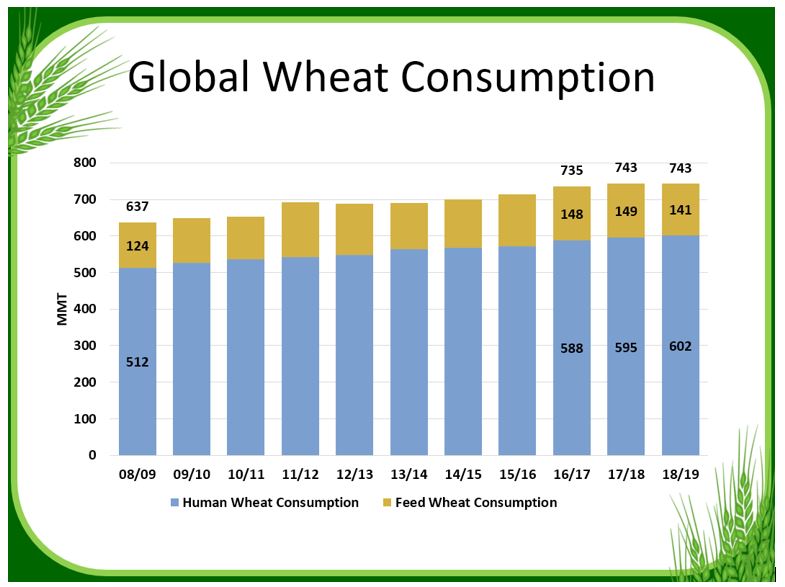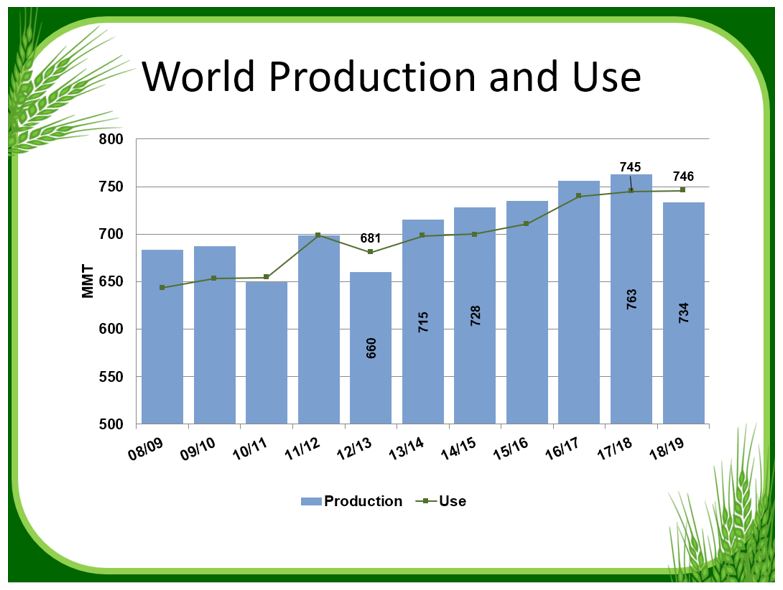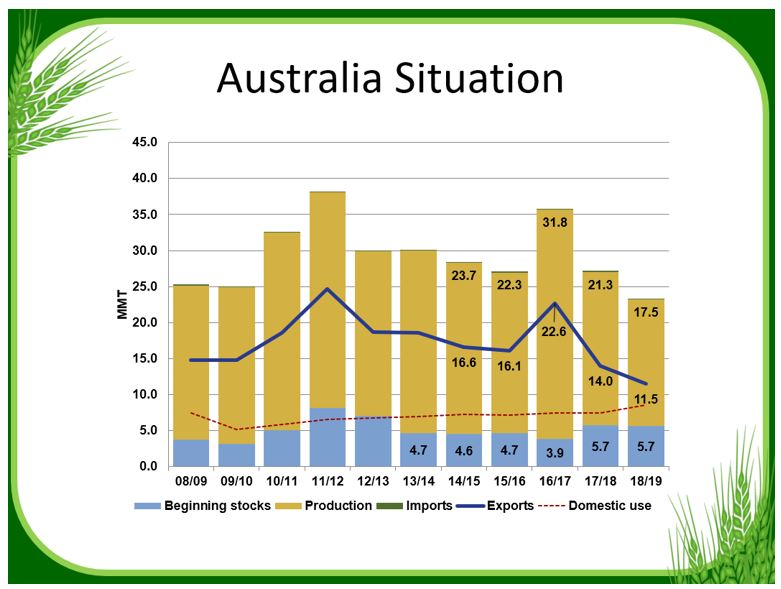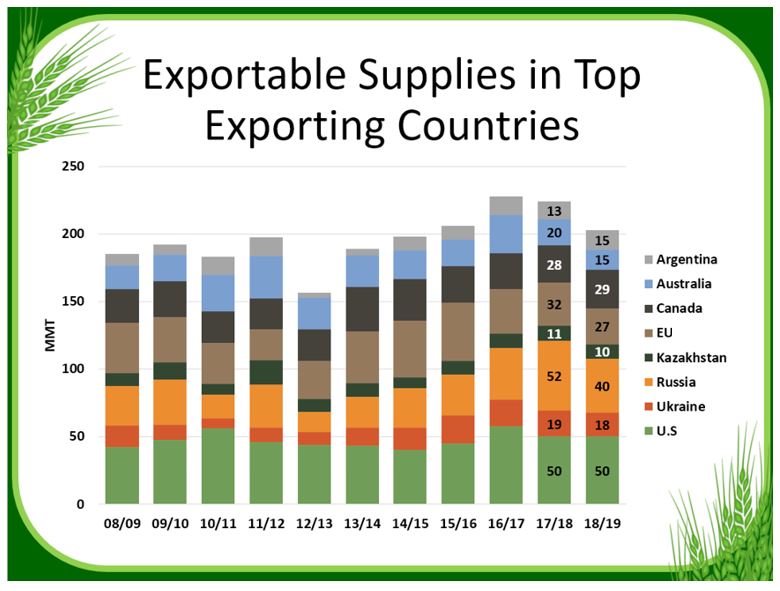Human Wheat Consumption Sets New Record
By Stephanie Bryant-Erdmann, USW Market Analyst
USDA expects global wheat consumption to remain at record high levels in 2018/19 due to increased human consumption. Human wheat consumption is expected to reach a record high 602 million metric tons (MMT), 4 percent above the 5-year average. Over the past ten years, global human wheat consumption has increased 90 MMT, while feed wheat usage has increased 16 MMT.

However, the global supply of milling wheat is expected to fall this year due to challenging growing and harvesting conditions that hurt both quality and yields in many of the major wheat exporting countries. USDA expects global wheat production to fall to the lowest level in 5 years at 734 MMT, down 4 percent from the record high of 763 MMT in 2017/18. If realized, it would be 1 percent below the 5-year average and the first-time global wheat consumption has exceed global wheat production since 2012/13.

The decline in global wheat production is due to decreased production in half of the major wheat exporting countries including the European Union (EU), Russia, Australia and Ukraine. If realized, Russian wheat production would still the third highest on record, but Australian wheat production is expected to fall its lowest level since 2007/08.

Australian wheat production is expected to fall 18 percent year over year to 17.5 MMT due to consecutive years of devastating drought in New South Wales and Queensland where Australian Prime Hard (APH) and Australia Hard (AH) production is centralized. Increased wheat production in Western Australia is expected to partially offset the decrease from the rest of the country. Australian wheat harvest typically occurs in December. USDA expects Australian exports to decrease to 11.5 MMT, 35 percent below the 5-year average and also the lowest level since 2007/08.

With exportable wheat supplies (production plus beginning stocks minus domestic consumption) decreasing in half of the world’s major exporters, USDA expects the United States to have the largest exportable supply of wheat in the world in 2018/19 at 49.9 MMT.

As a consequence, USDA expects 2018/19 U.S. wheat exports to reach 27.9 MMT, up 14 percent from 2017/18 and 7 percent above the 5-year average, if realized. Still, U.S. wheat export sales pace will need to increase to meet this goal, as year-to-date U.S. wheat export sales total just 13.8 MMT or 49 percent of USDA’s anticipated total.

To learn more about 2018 U.S. wheat quality, visit the USW Crop Quality page.

